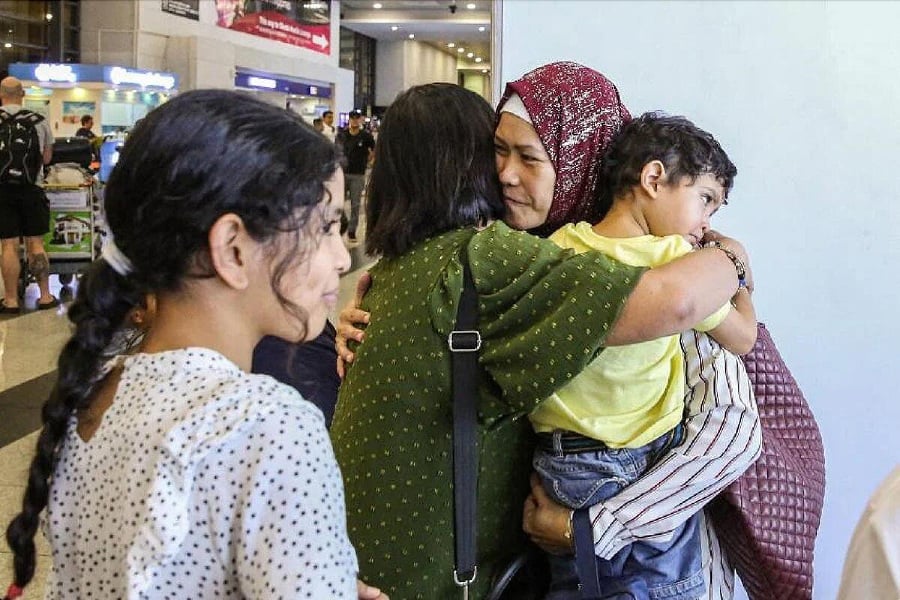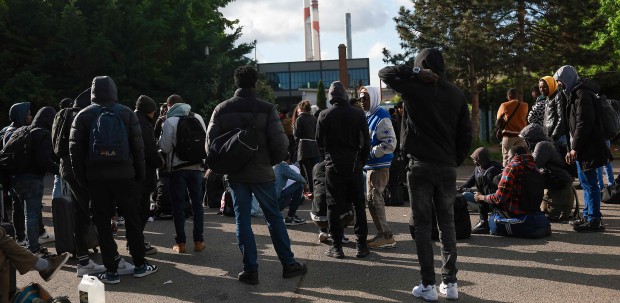LUCY Ortega thought her nightmare as an enslaved domestic worker in Syria was finally over when she boarded a government repatriation flight back to the Philippines four years ago. Instead, she faced a new set of problems.
Ortega was trafficked into servitude for eight years in Syria, then stranded for two years with other maids at a shelter at the Philippine embassy when she sought help, an episode that caused outrage in the Philippines and made global headlines.
But since arriving home, she has received no government compensation for the embassy ordeal, trauma counselling or help finding work.
Now 43 and with three children, job offers were increasingly scarce, she said.
"I was enticed to work abroad because there were no good jobs in the Philippines. But since coming back, it's become harder for me to find work," Ortega said at her wooden home in a shantytown in Manila.
The government covers emergency repatriation costs for workers caught up in wars, political crises or exploitation abroad.
During the Covid-19 pandemic, 2.24 million Filipinos were flown home free of charge, and dozens of Filipino women and their children have been repatriated temporarily from Gaza and Israel due to the war between Israel and Hamas.
But with the number of Filipinos who received overseas employment certificates at a record high of about 2.5 million in 2023, migrant rights advocates are sounding the alarm about the problems faced by many returnees, from unemployment to homelessness.
"The latest government figures mean we are sending 6,800 Filipinos per day (abroad).
"More and more Filipinos can be at risk, especially in conflict areas, if we fail to monitor them," said Arman Hernando, chairperson of migrant rights group Migrante Philippines.
Some say more must be done to support them by the Department of Migrant Workers (DMW), a government agency established two years ago to facilitate overseas employment and reintegration services for returning Filipinos.
Reintegration was "the weakest link" in the country's migration policies, according to a 2023 study by a group of university researchers on economic migrants.
Seeking to address such concerns, the DMW launched a command centre in 2022 to provide rapid repatriation and welfare assistance to distressed migrant workers.
The problem, said Hernando, was that the agency offered only emergency assistance and not a reintegration plan, which should include jobs, housing aid as well as legal advice and mental healthcare services.
Filipinos repatriated from Syria and returnees from Gaza said the government had paid for their flights and provided an emergency cash assistance of between 10,000 and 50,000 pesos.
Some of them were encouraged to use the money to start a small business.
But after spending years abroad, many migrant workers lacked the social network required to launch an enterprise, said Hernando.
Few migrant workers had a background in self-employment, said a survey published by the UN migration agency in 2022.
It showed that finding a way to make a living was rated as the biggest challenge by more than 80 per cent of returnees.
Ortega, who leads a support group of 52 trafficked domestic workers repatriated from Syria, said they had received 10,000 pesos from the government and no other reintegration services since returning to the Philippines.
She is working part-time in a lottery outlet, earning less than the minimum wage.
"I need a stable job for my three children who are in school," she said, adding that she also wanted government help to retrieve unpaid wages from her employer in Syria and redress over the conduct of embassy staff when she was marooned there.
"I need justice, but I also need money."
Maria Eliza Alcala, 47, another trafficked domestic worker who returned home from Syria in 2020, said it was hard for middle-aged mothers like her to find a job due to age discrimination.
The writer is from Reuters





